The West Point Speech and the Foreign Service
President Barack Obama delivers the commencement address at the United States Military Academy at West Point commencement ceremony at Michie Stadium in West Point, NY, on May 28, 2014. Official White House photo by Pete Souza.“America must always lead” was the theme of President Obama’s speech at West Point on May 28, 2014. This essay – posted on the former website of the Public Diplomacy Council on June 3, 2014, now republished for reference – was a response.Five years later, the nation has a new president, but the four trends mentioned in the essay endure It’s still true, for instance, that “no cavalry troop with a stagecoach of gold is headed our way.” And the need for strong diplomacy is as necessary in the current administration as it was in the last.The columnists and talking heads have given out grades – ranging from “A” to “F” – for President Obama’s speech on foreign policy at West Point. Me? I’m just confused – indeed ..
Malawakil Manama’s Public Diplomacy Initiative
kln.gov.my
EMBASSY OF MALAYSIA, MANAMA
The Ambassador of Malaysia to the Kingdom of Bahrain, His Excellency Agus Salim bin Yusof, and his wife, Norsyazwani Hamdan, paid a visit to Bahrain’s main hospital, Salmaniya Hospital on 21 May 2019. The purpose of the visit was to distribute gifts from the Embassy and PERWAKILAN Manama to more than 40 children in the paediatric ward of the Hospital, on the occasion of gergaoun (children’s traditional festival celebrated in mid-Ramadhan). The Embassy hopes that the gifts brought joy and happiness to the children who could not celebrate gergaoun with their families and friends. This first-ever initiative undertaken by the Embassy was one of the activities lined up to commemorate the 45th anniversary of diplomatic relations between Malaysia and the Kingdom of Bahrain this year.
Ambassador of the Year & Public Diplomacy Awards 2019
Posted by Editor on Monday, May 27, 2019; Diplomat Magazine
On the occasion of the 2nd Canada’s Ambassador of the Year&Public Diplomacy Awards 2019, the Faculty of Civil and Common Law of the University of Ottawa, in collaboration with the Deanship of the Diplomatic Corps of Canada and the International Public Diplomacy [JB emphasis] Council by Diplomat Magazine, celebrated in March its Awards Ceremony, that was followed by a reception. The Award consisted in a Canadian Inukshuk sculpture, and it was presented by the Deans of the Faculties of Law and the Dean of the Diplomatic Corps. Twelve prizes went to heads of diplomatic missions from twelve geographical regions to 12 award-winning ambassadors. Moreover, four special awards and recognitions were handed to organizations working closely with the foreign missions present in Canada. Special prizes also went to distinguished individuals, including a High Special Diplomatic Recognition to H.E. Constant Horace, Dean of the Diplomatic Cor..
The Dutch Council for Russian Compatriots elects a new Bureau.
diplomatmagazine.nl
Posted by Editor on Saturday, June 1, 2019 · Leave a Comment
Konstantin Makarenko, the Executive director of the Public Diplomacy [JB emphasis/underlining] Corps (PDC) Foundation named the priority for the current stage: “to change the principles of work”.The Hague, 18th May 2019. TASS Correspondent Vitaly Chugin. A scheduled conference of the Coordination Council of Russian compatriots was held last Saturday in the Hague. The Conference elected a new Bureau and set out the goals and tasks for the near future.When speaking to our TASS correspondent, Mr. Makarenko, the Executive director of the Public Diplomacy Corps (PDC) Foundation, who moderated the meeting, mentioned that the priority for the current stage is: “to change the principles of work”.“Our organization needs a new working style”, said Mr. Makarenko. “In the past our activists reported on their own work results. Now we have built an internet portal which will publish the information on positive experie..
Global Media Giants Meet to Debate Their Future and Challenges Ahead in the 21st...
Alan Heil, Public Diplomacy Council, May 20, 2019It was perhaps the largest gathering of public diplomacy advocates and international broadcasters and media scholars ever held in America. The U.S. Agency for Global Media (USAGM) organized a day-long conference May 7 at the U.S. Institute of Peace in an atrium within sight of the Lincoln Memorial.
Senator Ted Cruz (R-Texas).Highlight of the day: an address by Senator Ted Cruz (R-Texas), a new member of the Senate Foreign Relations Committee who eloquently summarized the role of America’s free press and expanding avenues worldwide for defending truth in journalism.As Senator Cruz put it: “Our principles can tear down walls, can topple tyrannies, can promote freedom. America should consistently be a voice for freedom. We should be a voice for human rights. We should be a voice for democracy, because that truth is powerful and it can transform the world.“That’s also where an American free press and the USAGM come into play. Now to be clear..
Sushma Swaraj, the minister who brought a human touch to MEA
Rekha Dixit, Mandira Nayar, theweek.in, June 1, 2029; on Swaraj's exist as Foreign Minister, see
The diminutive leader leaves behind very big shoes to fill in (image from article)
Indian diplomats in overseas missions had taken to sleeping with their cellphones switched on. Sushma Swaraj, the former external affairs minister (EAM), had the habit of calling—regardless of the time difference—if she got a tweet or heard that an Indian was in distress. Overnight, the ministry of external affairs (MEA), which had earlier left public diplomacy [JB emphasis] to the ministry of overseas Indian affairs (MOIA), had to become much more hands on. The MOIA, not surprisingly, was soon dissolved and subsumed by the MEA. “I do not sleep. I do not let Indian envoys sleep,'' quipped Swaraj at a press conference once. But it was more than just a light-hearted remark. It was the way she worked. And it will be this personalised stamp of diplomacy which will be missed at the ministry, mission..
The revival of realist thinking in international relations
Tarık Oğuzlu, dailysabah.com, 31.05.2019
While realist power politics take precedence over liberalist opportunism, the great powers are both shaping and confronting this new reality
Excerpt:
[T]he world has recently witnessed a strong comeback of realist thinking in international relations. As nationalism and geopolitics have seen a strong revival, we are no longer on the verge of transcending into a borderless world in which universalism overshadows particularism. ...
The evolution of Chinese foreign policy over the last decades does also suggest that a realist turn has become more noticeable in recent years. The more powerful China has become in terms of material power capabilities, the more assertively it has begun to question the decades-old American hegemony in East and Southeast Asia, as well as promote its political-economy model beyond its borders through such initiatives as Belt and Road. China's efforts to entice its neighbors through lucrative free trade agreements and..
Jackson native fights North Korean propaganda as an American diplomat
Brianne Twiddy, btwiddy@mlive.com, mlive.com
Beau Miller (center left) supporting the U.S. Presidential Delegation to the 2018 PyeongChang Paralympic Winter Games. (Courtesy Photo)
JACKSON, MI -- When a person escapes North Korea, they gain freedom but they face other obstacles, like learning English and unlearning propaganda against the western world.
Beau Miller, whose parents live and work in Jackson, is a public diplomat [JB emphasis] and informant in Seoul who helps defectors once they reach South Korea. He also helped launch an English Access program, which teaches North Korean defectors the language and adjust to their new life, he said.
Miller and his colleagues won the prestigious Gears in Government award on April 30 for his work launching the program. It was a surprise to win because it’s the program’s first year, Miller said.
“It was nice to be acknowledged,” Miller said. “The work itself is incredible. I came (to Seoul) four years ago and it’s been a wild ride with everyth..
Europe’s Deep Reservoir of Goodwill in the Middle East: Lessons for Public Diplomacy
mei.edu [JB note: I was not able to identify the author of this article]
The MENA and Southeast Asia have undergone and continue to undergo massive political transitions. Differences in the process and outcomes of their transitions can be viewed through the lens of a “civil society infrastructure.” This essay series explores the roles and impact of civil society organizations (CSOs) in these two regions during the transition and pre-transition periods as well as in instances where the political transition is completed. Read more ...Political and economic transitions are seldom, if ever, compartmentalized processes, insulated from regional and global influences. On the contrary, they are often informed and shaped by exogenous forces and the policies of external actors, including states and international organizations. How can external actors develop interventions that are more likely to be well received and thus support transitions to democracy?Last fall I took part in a conference on “..
[National Security Decision Directive-77 to promote public diplomacy]
National Security Decision Directive 77From Wikipedia, the free encyclopediaJump to navigationJump to searchNational Security Decision Directive 77NSDD77AuthorUnited States National Security CouncilCountryUnited StatesLanguageEnglishPublishedJanuary 14, 1983 Federal government of the United StatesMedia typePrintPages3National Security Decision Directive 77(NSDD-77; titled Management of Public Diplomacy Relative to National Security), was a U.S. National Security Directive signed on January 14, 1983 by President Ronald Reagan. The directive established a Special Planning Group (SPG) under the National Security Council (NSC) whose purpose was to strengthen, organize, plan, and coordinate public diplomacy of the United States relative to national security.[1]This NSDD positioned the White House and the National Security Staff at the helm of public diplomacy coordination across government agencies. NSDD-77 lay the groundwork for the Reagan administration's aggressive public diplomacy ..





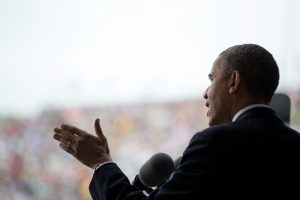

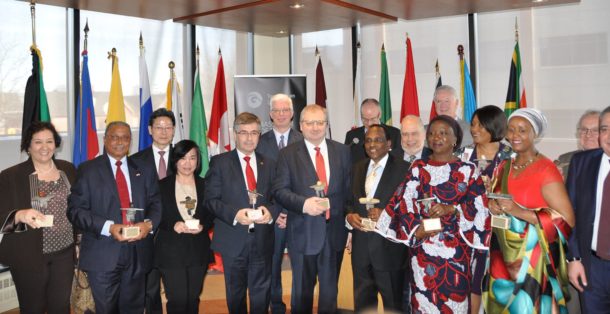
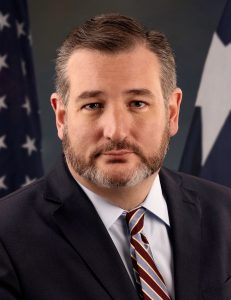
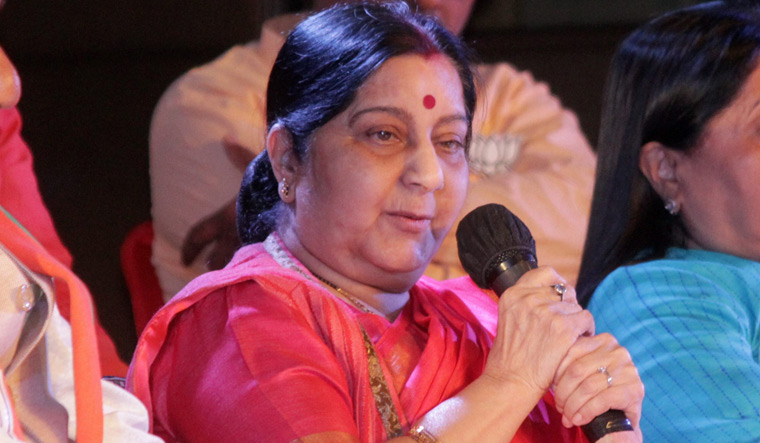
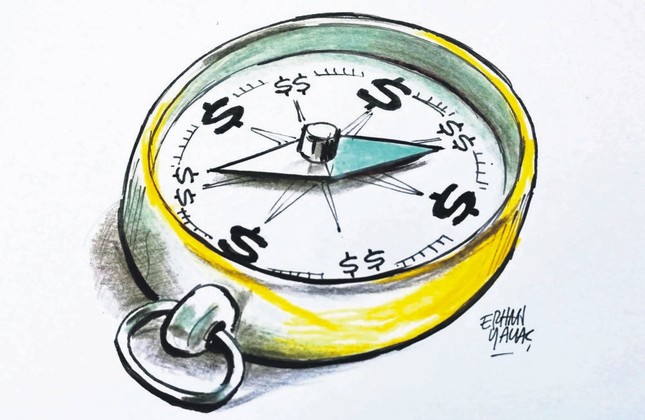
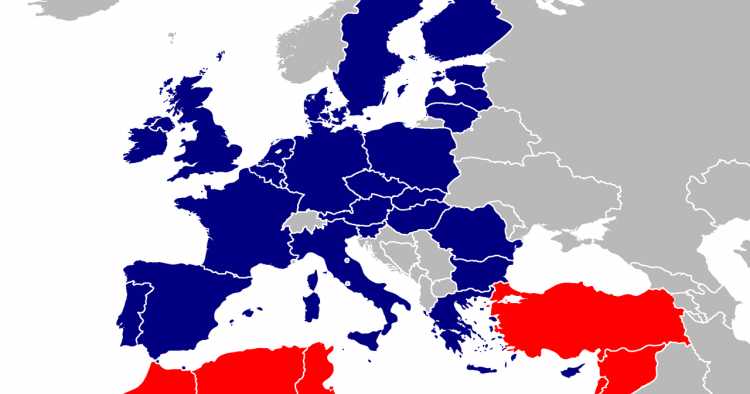
![[National Security Decision Directive-77 to promote public diplomacy]](https://www.bidd.org.rs/wp-content/uploads/2019/05/198px-NSDD77.jpg)